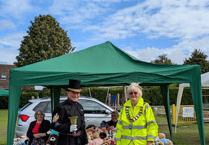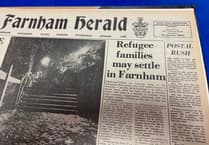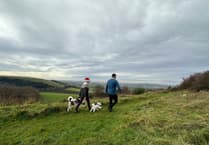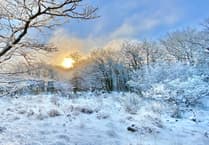PUPILS at Liphook Junior School have become space biologists and embark on a voyage of discovery by growing seeds that have been into space.
Last September, 2kg of rocket seeds were flown to the International Space Station (ISS) on Soyuz 44S where they spent several months in microgravity before returning to Earth this March.
The seeds have been sent as part of Rocket Science, an educational project launched by the RHS Campaign for School Gardening and the UK Space Agency.
Liphook Junior School is one of up to 10,000 schools to receive a packet of 100 seeds from space, which pupils are growing alongside seeds that haven’t been to space and which they will be measuring to see if there are any differences over seven weeks.
Pupils don’t know which seed packet contains which seeds until all results have been collected by the RHS Campaign for School Gardening and analysed by professional biostatisticians.
The out-of-this-world, nationwide science experiment will enable pupils to think more about how we could preserve human life on another planet in the future, what astronauts need to survive long-term missions in space and the difficulties surrounding growing fresh food in challenging climates.
Executive headteacher Michele Frost told The Herald: “We are very excited to be taking part in Rocket Science. This experiment is a fantastic way of teaching our pupils to think more scientifically and share their findings with the whole school.”
Neil Newitt, one of the school’s governors helped get the school involved in the initiative and plant seeds with the children – ensuring everything was done to the exact specifications.
Rocket Science is just one educational project from a programme developed by the UK Space Agency to celebrate British ESA astronaut Tim Peake’s principal mission to the ISS and inspire young people to look into careers in STEM (science, technology, engineering and maths) subjects, including horticulture. Follow on Twitter @RHSSchools #RocketScience





Comments
This article has no comments yet. Be the first to leave a comment.